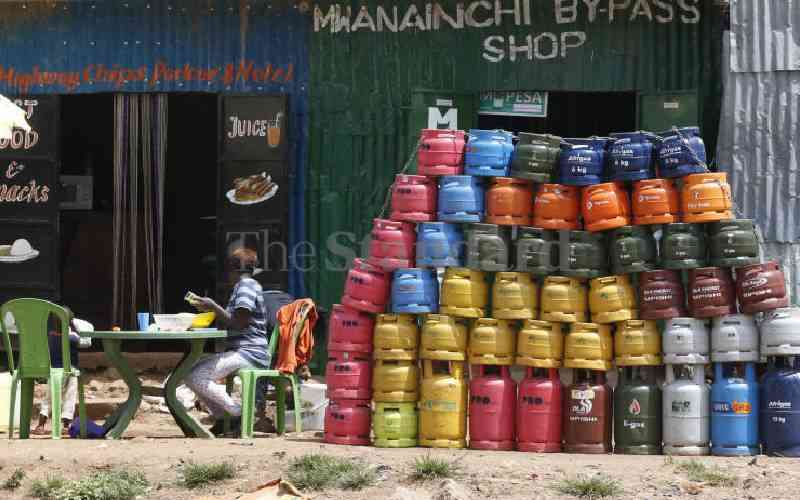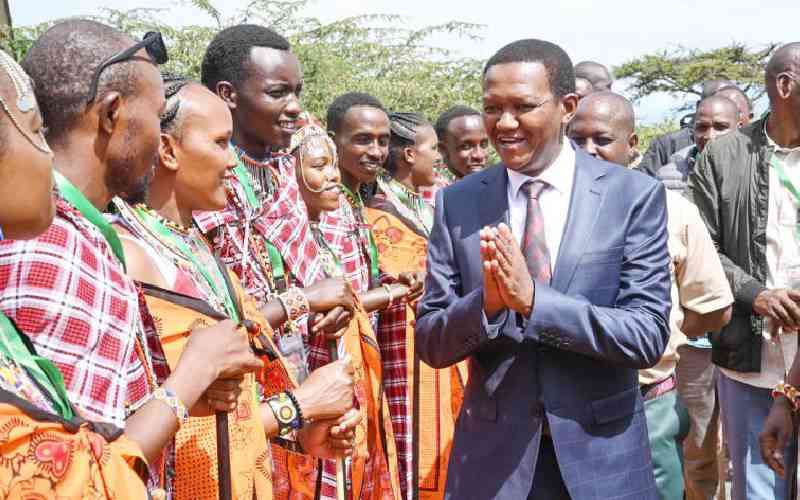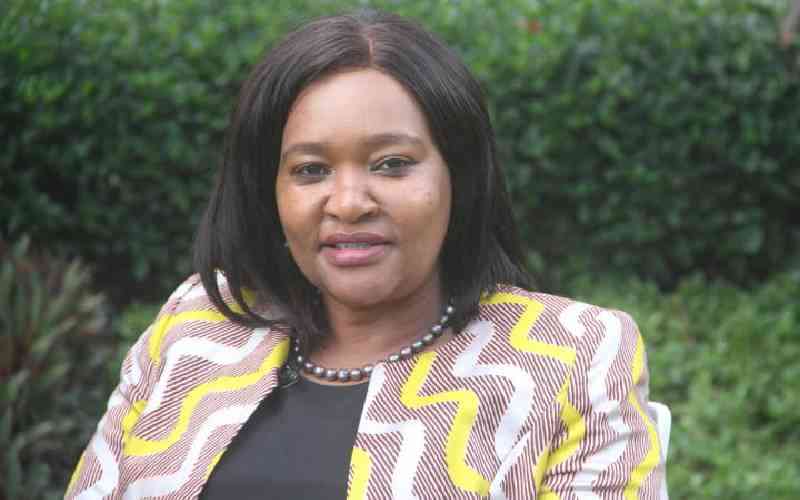NAIROBI: Over the last decade, the finance and telecommunications sectors have powered the growth of the Kenyan economy.
The massive investment in technologies that sit at the heart of these two industries has not only created hundreds of thousands of jobs — and new wealth — but also empowered an entire generation of Kenyan millenials, who today cannot imagine living in a world that is not connected to the Internet or queuing for an entire day just to check their account balances.
Our best bet, then, is bringing these two industries to work together in a complementary role to fast track Kenya’s rise up the league table of industrialised middle-income countries.
After the recent rebasing of our gross domestic product, it is critical we ensure our prosperity lifts the fortunes of every single person. This will only be possible if we ensure the availability of tools for every citizen to participate in wealth creation, and evenly distribute economic growth.
One quick way is to offer the public an easy and convenient way to access financial services to save and borrow to invest.
This calls for innovation in the way the country finances growth and mobilises resources to fund capital investment. More people need to save more so as to generate enough investments to power growth. It is easy to see why.
FOREIGN FUNDING
Recently, the Government initiated the road annuity programme, which aims to double tarmacked roads from 14,000 to 24,000 kilometres in the next three to five years. The project is expected to create nearly 137,000 direct jobs at an estimated cost of Sh300 billion.
The annuity programme means the Government expects the private sector to step in to finance the project. Financial institutions are the natural choice. Unfortunately, as it is today, the financial sector would struggle to fund such a project, which would then require syndicating the loan to foreign funding.
The road annuity is just one project that needs massive funding if Kenya is to experience accelerated social and economic transformation. The list of other projects lined up is endless. Therefore, there is need for the Government not to compete with small businesses for financing from banks.
Unlike most developed countries where over 90 per cent of the population has access to formal financial services, making it easy to save, only a third of the Kenya population has such access.
Other democracies such as Singapore have used the law to force their population to save — a minimum of 40 per cent of their wage, shared equally with employers. Pooled savings are then channeled into bank loans, providing long-term finance to power growth.
The East Asian economies, which are famous for their high levels of investment in physical capital and economic growth from the early 1960s to date, have been characterised by high gross domestic savings of over 30 per cent of GDP. Kenya’s gross national savings of 11.1 per cent of GDP in 2009 do not even measure up to our peers in sub-Sahara Africa at 20.3 per cent.
ALTERNATIVE ASSETS
The challenge in Kenya and one that must be addressed is the question of locked savings, which are not available for lending and earn little or no returns. Locked savings, which is money retained in alternative assets like cattle, jewellery or simply cash under the mattress, are largely driven by two factors: lack of access to financial markets and savers’ lack of faith in the institutions taking their money.
To unlock wealth and get it flowing into formal bank accounts, we believe the mobile phone offers the best solution that can both convince people their money is in safe hands, as well as reduce the costs that banks incur to reach customers by building and maintaining expensive branches.
We recently launched the KCB M-Pesa account. Since 2007, Safaricom’s mobile money transfer platform, M-Pesa, has been able to offer more than 12.8 million users convenience in moving money. The platform is currently moving a quarter of the country’s wealth every year. Last year, KCB moved Sh7.8 trillion, or 1.5 times the size of the Kenyan economy.
Harnessing such partnerships between financial institutions and telecommunications firms is bound to super-charge the cashlite economy and bring full-scale mobile banking and commerce to the masses.
Already, the partnership between M-Pesa and CBA has seen 4.5 million savers deposit about Sh5 billion and borrow close to Sh2 billion in under three years.
The idea is to dramatically scale up this success, ensuring every single Kenyan has a tool to enable them participate in growth by first saving and then accessing credit, which is critical in funding growth.
The writer is KCB Group CEO.
[email protected]
 The Standard Group Plc is a multi-media organization with investments in media
platforms spanning newspaper print operations, television, radio broadcasting,
digital and online services. The Standard Group is recognized as a leading
multi-media house in Kenya with a key influence in matters of national and
international interest.
The Standard Group Plc is a multi-media organization with investments in media
platforms spanning newspaper print operations, television, radio broadcasting,
digital and online services. The Standard Group is recognized as a leading
multi-media house in Kenya with a key influence in matters of national and
international interest.
 The Standard Group Plc is a multi-media organization with investments in media
platforms spanning newspaper print operations, television, radio broadcasting,
digital and online services. The Standard Group is recognized as a leading
multi-media house in Kenya with a key influence in matters of national and
international interest.
The Standard Group Plc is a multi-media organization with investments in media
platforms spanning newspaper print operations, television, radio broadcasting,
digital and online services. The Standard Group is recognized as a leading
multi-media house in Kenya with a key influence in matters of national and
international interest.









